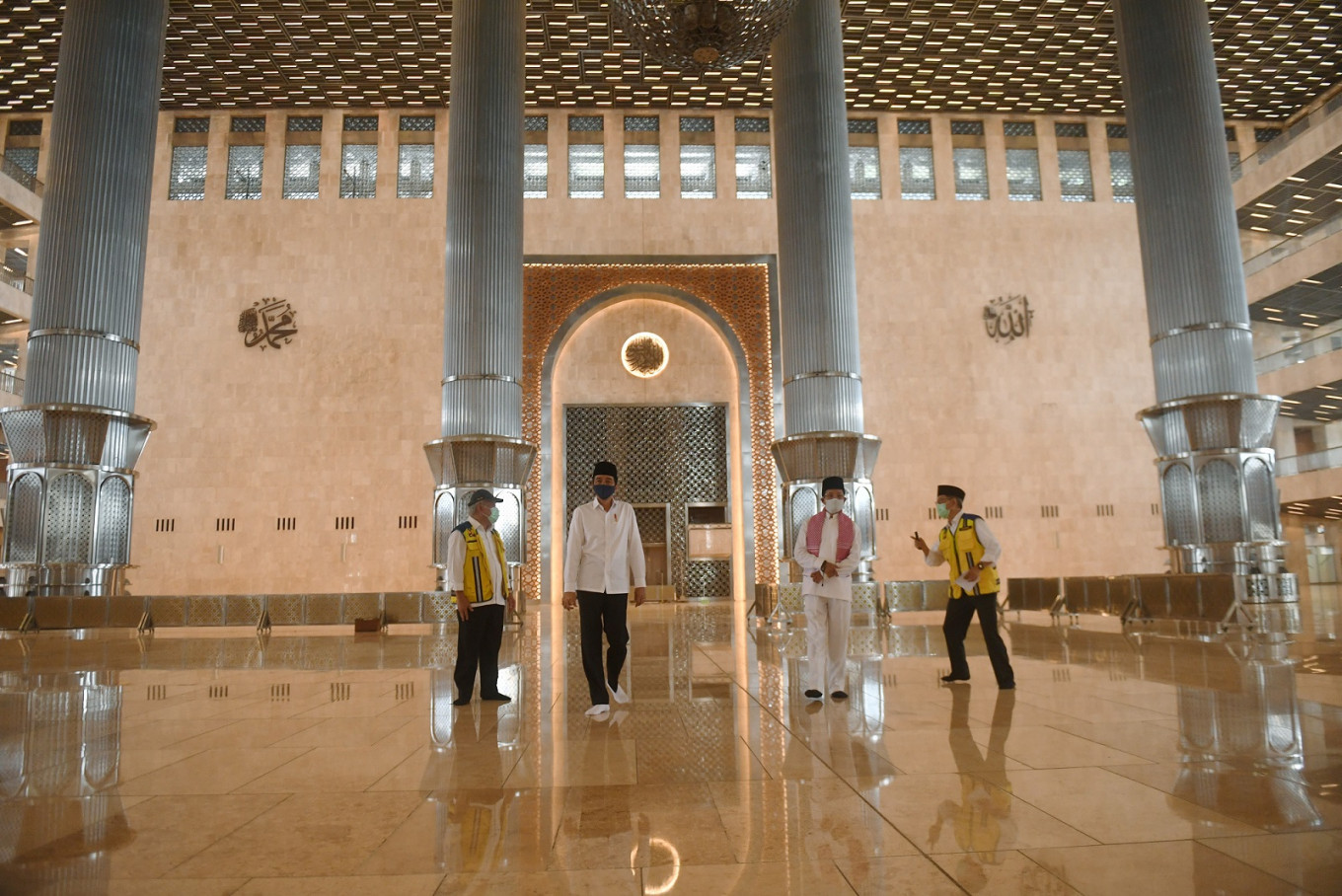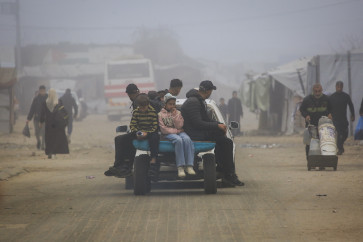Popular Reads
Top Results
Can't find what you're looking for?
View all search resultsPopular Reads
Top Results
Can't find what you're looking for?
View all search resultsIstiqlal Mosque may reopen in July, Jokowi says while inspecting renovations
President Joko “Jokowi” Widodo visited Istiqlal on Tuesday to check on the renovations. He said that according to the Mosque’s grand imam, Nasaruddin Umar, the large-scale renovations were 90 percent complete and would be finished in July, several months later than the initial schedule for March due to the pandemic.
Change text size
Gift Premium Articles
to Anyone
 President Joko "Jokowi" Widodo (second left), accompanied by Public Works and Housing Minister Basuku Hadimuljono (left), grand imam Nasaruddin Umar (second right) and Cipta Karya director general Danis Sumadilaga, visits Istiqlal Mosque in Central Jakarta on Tuesday to check on the renovations, which are expected to be completed by July. (Antara/Akbar Nugroho Gumay)
President Joko "Jokowi" Widodo (second left), accompanied by Public Works and Housing Minister Basuku Hadimuljono (left), grand imam Nasaruddin Umar (second right) and Cipta Karya director general Danis Sumadilaga, visits Istiqlal Mosque in Central Jakarta on Tuesday to check on the renovations, which are expected to be completed by July. (Antara/Akbar Nugroho Gumay)
T
he government is preparing to reopen the Istiqlal Mosque in Central Jakarta in July in accordance with the “new normal” approach amid the COVID-19 pandemic as renovations on the mosque near completion.
President Joko “Jokowi” Widodo visited Istiqlal on Tuesday to check on the renovations. He said that according to the Mosque’s grand imam, Nasaruddin Umar, the large-scale renovations were 90 percent complete and would be finished in July, several months later than the initial schedule for March due to the pandemic.
“Will it be reopened after the renovations are completed? It has yet to be decided. The grand Imam said Istiqlal would be opened in July,” the President said.
“I only reminded him that we need to prepare health protocols so people will be safe from COVID-19 when they are allowed to pray at Istiqlal,” the President said.
The renovations kicked off in May last year to give the largest mosque in Southeast Asia a facelift. The renovations included increasing the parking capacity, revamping the landscaping and the plaza and upgrading the toilets, ablution blocks, electrical system and plumbing. The Rp 475 billion (US$32.85 million) project is the first renovation of the mosque since it was inaugurated in 1978.
In a circular letter issued on Friday, Religious Affairs Minister Fachrul Razi set guidelines for houses of worship that are set to reopen soon under the “new normal” of the post-pandemic era.
Among the requirements for houses of worship to reopen is for the COVID-19 basic reproduction number (R0) and effective reproduction number (Rt) to fall below a certain threshold. Furthermore, houses of worship must obtain a letter from the government’s COVID-19 task force confirming that the area is virus-free, while large houses of worship must also obtain permission from regional heads.
People have turned to virtual congregations in recent months as houses of worship were temporarily closed as part of the effort to contain the spread of COVID-19. (trn)









